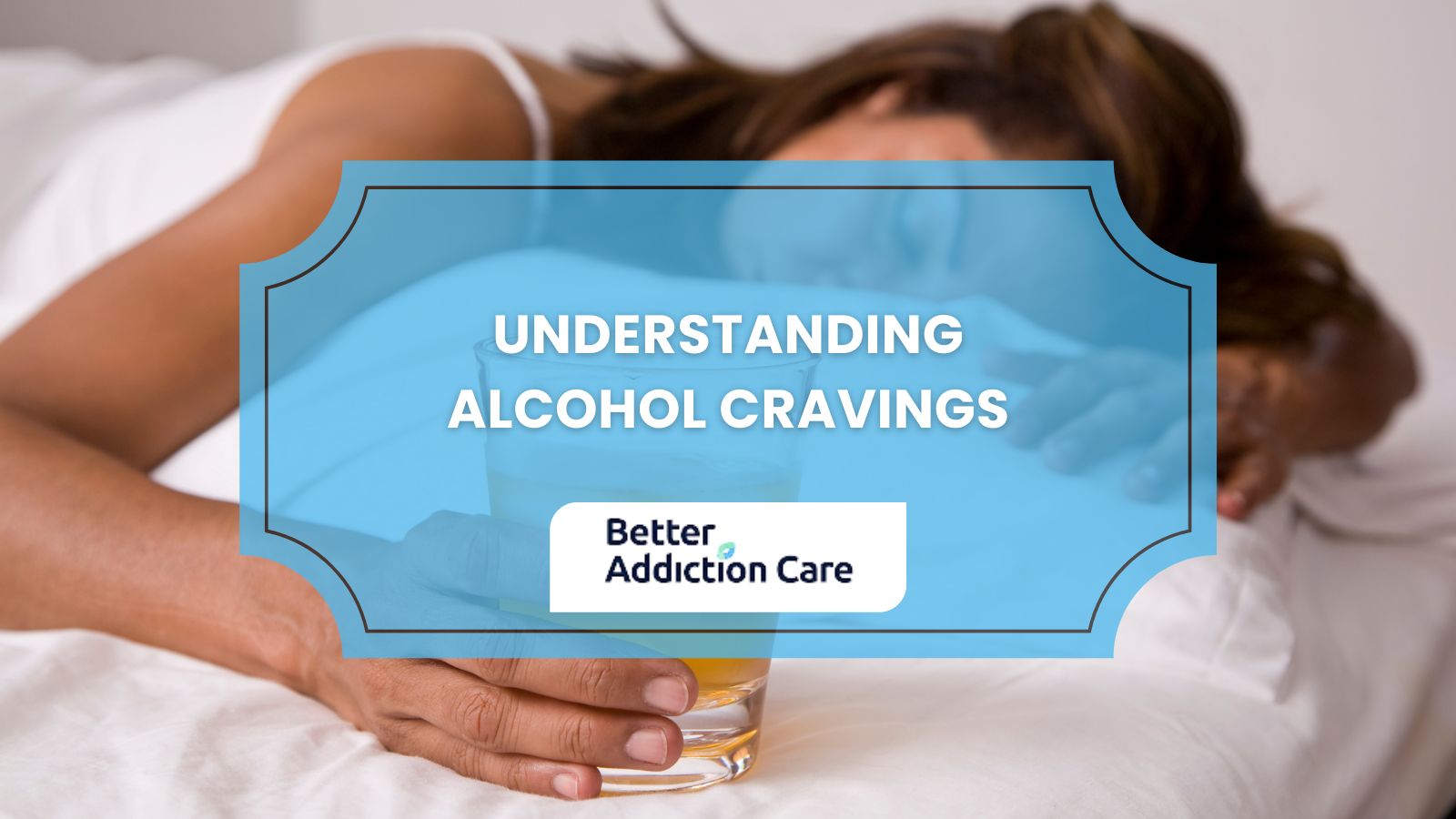Is Alcohol Addiction Counseling a Good Option for Me?
Yes, alcohol addiction counseling is a good option for you if you're ready to change your relationship with alcohol. counseling offers personalized support, proven strategies, and a safe space to build lasting sobriety.

Counseling is a fundamental tool to treat alcohol abuse or addiction. When we speak of alcohol abuse or addiction, we are referring directly to the excessive consumption of alcoholic beverages that leads to detrimental effects on relationships, general functioning, physical health, and mental health. In short, to abuse alcohol is to drink in a way that harms oneself or others, to ignore personal obligations, to act recklessly, to suffer health problems, and to become - consciously or unconsciously - dependent on alcohol.
If you are looking for a way to deal with your alcohol problem, the first thing you should do is admit that you need help and then go on to explore the options available. Many treatment and counseling options exist, such as group and individual therapy, outpatient programs, and residential treatment centers.
It would help if you spent some time researching the various therapeutic philosophies and the level of experience of the counselors at the center you like or are comfortable with, as well as pragmatic issues such as accessibility and support services. Remember that getting sober and staying sober requires your full concentration and commitment.
Is Alcohol Addiction counseling an Effective Treatment for Alcoholism?
Yes, alcohol addiction counseling is an effective treatment for alcoholism, helping individuals change harmful behaviors, manage triggers, and build long-term sobriety through evidence-based therapies like CBT, DBT, and motivational interviewing
Counseling is a comprehensive strategy for recovering from addiction. Hence, someone who has alcoholism may gain much from it. Counseling might help those who battle alcoholism by assisting them to become more aware of who they are, what motivates them to drink, and the thoughts, feelings, and behaviors that go along with it.
Using cognitive-behavioral therapy (CBT) can help individuals develop more effective strategies for managing stress and cravings, ultimately helping them overcome their alcoholism. When people use motivational interviewing techniques, they can also explore their motivations for wanting to change. The most important thing to recognize is that all of the counseling options available are there to help you and can help you feel more in control and increase your level of determination to overcome your dependence and stay sober.
Counseling is designed so that you can feel that you are going there for added content, such as support, guidance, and accountability from caring and knowledgeable peers in a safe and welcoming counseling environment. During therapy, you can identify with many diverse realities you may encounter in group or individual sessions, where people are going through similar experiences.
Family therapy can effectively address the complexities of interpersonal relationships and bring your family unit into the rehabilitation process. The important thing is that in each type of counseling, you are given the tools necessary to overcome your dependency.
What Level of Treatment is Alcohol Addiction Counseling?
Alcoholism counseling is in the level of outpatient therapy, which is a less intensive treatment option than residential or inpatient programs. Outpatient counseling allows patients to maintain their regular schedules while receiving treatment at home. This kind of therapy may be beneficial to those who are moderate to mild alcoholics or to those who have completed a higher degree of care and are preparing to live independently with the assistance of ongoing services.
Regular therapy sessions, either individual or group, or a mix of the two, are a common component of outpatient alcohol addiction treatment. Session goals in alcohol addiction treatment include:
- Identifying and resolving core concerns.
- Learning healthy coping mechanisms.
- Creating a plan to stay sober.
The fact that counseling is part of the outpatient level of care of addictions is of utmost importance, as it is very beneficial for patients as they can continue with their social and work life because outpatient treatment is flexible; however, this option is suitable for mild addiction or people who have already completed inpatient treatment and are in aftercare treatment, as receiving only outpatient treatment may be more difficult to get better if you are a heavy drinker or if you need more care and supervision.
How Many Types of Alcohol Counseling Are There?
There are at least 8 main types of alcohol counseling, including cognitive behavioral therapy (CBT), dialectical behavior therapy (DBT), motivational interviewing (MI), contingency management, family and marital counseling, group therapy, brief interventions, and 12-step facilitation programs like Alcoholics Anonymous.
Cognitive behavioral therapy aims to help patients overcome alcohol-related negative cognition and behavior patterns. Motivational interviewing (MI) and brief therapies provide targeted feedback to encourage change.
Alcoholism's causes are addressed in family therapy. Group therapy helps sufferers feel connected. However, 12-Step Facilitation Therapy, based on AA, is the most popular. It is emphasized that one must admit one's powerlessness over alcohol, seek support from peers, and apologize for past transgressions.
Medication-assisted treatment may also help to alleviate withdrawal symptoms and cravings when administered under the supervision of a physician. Because alcohol addiction therapy is challenging, there are numerous ways to provide assistance and treatment options.
Is 12-Step Facilitation Therapy Good?
12-step Facilitation Therapy (TSF) is a type of counseling that helps alcohol and drug abusers in a variety of ways. Its roots are in Alcoholics Anonymous (AA) and Narcotics Anonymous (NA), which are programs that emphasize spirituality, drug withdrawal, and general group support. A significant advantage of 12-step programs is that they promote various activities, including free AA and NA meetings in many communities, making TSF accessible to many.
These meetings are characterized by offering a supportive environment for people in recovery. However, they are only suitable for some. Keep in mind that these therapies are fundamentally faith-based, and if belief in deities is not your thing, consider other types of counseling.
TSF attempts to meet a wide range of needs but cannot cover everything, so it can be considered part of the therapeutic plan and not the whole one. In addition, the person's preferences and goals must be reviewed to decide if this is a good option. Only some people should choose TSF; some people may do better with other types of therapy, and this does not invalidate its effectiveness.
Is Alcohol Addiction Counseling a Good Option for Me?
To find out if alcohol addiction counseling is proper for you, you need to be honest with yourself and take a hard look at your willingness to change, how dependent you feel, your situation, and your support system. Counseling can help you a lot if you are eager to stop drinking and are willing to put in the time and work to get there. As you seek sobriety, it provides a safe space to identify and address the issues that have contributed to your addiction. The effectiveness of counseling as a therapeutic option depends on your active therapy participation and willingness to incorporate the suggested adjustments.
Consider your available resources more than anything else. Preexisting networks can benefit greatly from therapy's additional tools and guidance. Finding the right counseling approach—individual therapy, group sessions, or a combination of the two—is essential. Consider the ease with which you can obtain counseling services and their location, price, and insurance coverage. Consider these factors and speak with medical professionals to make an educated choice on whether alcohol addiction treatment is appropriate for you.
|
Factors |
Good Candidate |
Bad Candidate |
|
Severity of Addiction |
Mild to moderate |
Severe |
|
Readiness for Change |
Motivated and committed to recovery. |
Ambivalent or resistant to change. |
|
Support System |
Strong support network. |
Limited or no support system in place. |
|
Treatment Preferences |
Open to exploring therapy options. |
Refrain from engaging in counseling. |
|
Accessibility |
Easy access to counseling services. |
Limited access due to location or finances. |
|
Previous Treatment. |
Few or no prior unsuccessful attempts. |
Multiple unsuccessful attempts at recovery. |
Where to Start looking for an alcohol addiction counseling?
The first step when looking for alcohol addiction counseling is like always admitting that you need help; in other words, acceptance is the key. This decision requires a lot of courage. After accepting your reality, you should look for some local treatment options and do some investigation to evaluate your options. There are many options, but the most common are group or individual therapy, outpatient or inpatient rehabilitation, or 12-step programs such as Alcoholics Anonymous (AA). A healthcare provider can help you determine the right level of care for you.
The second step is to make an appointment with a medical professional. Based on their evaluation, they can advise you on the best course of action and suggest treatments specific to your needs and preferences.
Think about checking out a local AA meeting or another support organization for those with alcoholism. In these gatherings, you will find a welcoming community of people going through the same things you are.
There are online counseling programs and support groups that you can join if you prefer a more private approach or if in-person counseling isn't accessible. Virtual counseling sessions and individualized resources are available on these platforms.
Getting help isn't always easy, but it's a crucial first step to healing and recovery. Remember that there are several resources and support networks to assist you; you are not alone in facing this difficulty.







